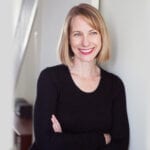Humourist David Rakoff is scared of everything. “I’m claustro-phobic, agoraphobic, you name it. Left to my own devices, I’d never leave my house,” he says over the phone from his home in New York, where, he explains, he is currently Windexing his fridge (he is also afraid of dirt).
“So I am eternally in debt to a number of editors who forced me to go to all kinds of strange places and allowed me to crack wise.”
The master of what he calls “the uncomfortable juxtaposition story” – send a neurotic, gay, Jewish New Yorker to climb a snow-covered mountain in New Hampshire, or to a New Age retreat to meet Steven Segal – Rakoff has made a name for himself by exploiting his fears. Since he started writing full time eight years ago, his work has been featured on Public Radio International’s popular show This American Life (where fellow gay funnyman and friend David Sedaris got his start) and in glossy magazines like GQ, Outside and Details.
It’s not that he likes to write. He likens the process to “pulling teeth… out of my dick.” But he can’t think of anything he’d rather do. “I hate doing it, but I have so much respect for writing. I love the alchemy of writing. The power to convince, move or change people. And I can’t come up with anything else that I can do that can access that kind of power.”
Powerful it is. His best-selling 2001 collection of essays, Fraud, revealed a fresh, comic voice, as willing to skewer himself as he is his puffed-up subjects and the absurd situations in which he finds himself: playing a small role in a popular soap opera (an occasional character actor, Rakoff says he’s often cast as either “Jewy McHebrew or Fudgy McPacker”); or tracking down the mythical Hidden People of Iceland; or even searching for the sperm he had frozen in his early 20s before undergoing treatment for Hodgkin’s disease. (He’s been cancer-free ever since and even in this he finds humour: “Despite the fact that I received both radiation and chemotherapy, I cannot escape the feeling that I was, at best, a cancer tourist, that my survival means I dabbled.”)
While still razor-sharp funny – perhaps even more so – his new collection, Don’t Get Too Comfortable, is a shift away from the earlier, more personality-driven work to more pointed social criticism. These days he’s more interested in politics than his own phobias.
“I was beginning to get worried about staying too long at the fair with that kind of material.
“The new book is about all the stuff that’s been driving me crazy and that I’ve been ranting about to my friends for years. In the past couple of decades, the wealthy have experienced an exponential escalation of wealth without any attendant reflection. Where’s the outrage?”
Rakoff’s rage is aimed at the pampered, all-too-comfortable members of the middle and upper class, the types of people who fetishize artisanal cheeses, haute couture and luxury travel. On a trip aboard the Concorde or accompanying a group of models for a swimsuit shoot in Belize or eating an ostentatiously simple meal at a slow food restaurant, Rakoff lays bare the growing economic and cultural gap between the haves and have-nots.
For instance, of gay Republicans who would forsake their civil rights and the collective good for tax breaks, he writes that, “Greed trumps principle as people vie for passage on the Bush administration representation-without-taxation gravy train…. It’s a cargo-cult fantasy of a Karl Rovian utopia where the social safety net has been dismantled and the economic windfall rains down upon the lucky few. Come for the cash, stay for the homophobia.”
His views seem particularly prescient given the disproportional devastation that Hurricane Katrina had on poor, African-American southerners compared to their wealthier white counterparts.
“With the greater proliferation of news outlets, people are increasingly catered to informationally,” he says. “You can shut out opinions you don’t agree with or stories you don’t want to hear. So the one good thing that’s come out of the tragedy is that the story is finally getting out of the inequitable sacrifice some Americans are making. For the sake of lower taxes, there was no infrastructure to look after people when the hurricane hit.”
Yet despite his misgivings about the current state of the United States, Rakoff, who was born in Montreal and raised in Toronto, recently took the plunge and became a US citizen. He moved to New York (“The great love of my life”) when he was 17 to major in East Asian studies at Columbia University. After years of living as a resident alien, he said that George W Bush made him American, at least the draconian Patriot Act made him worried about what might befall him without the protection of citizenship.
“I know there’s a thing about Canadians becoming Americans, but to me it feels like I’ve just formalized my 24-year relationship with New York. I came here with all these derivative Woody Allen ideas about the place, that I’d be at glamorous parties tinkling Cole Porter tunes on the piano. Of course, that’s not the reality, but, despite all the challenges of living here, the alienation and the heartbreak, I’m still in love with New York’s artistic soul.”


 Why you can trust Xtra
Why you can trust Xtra


